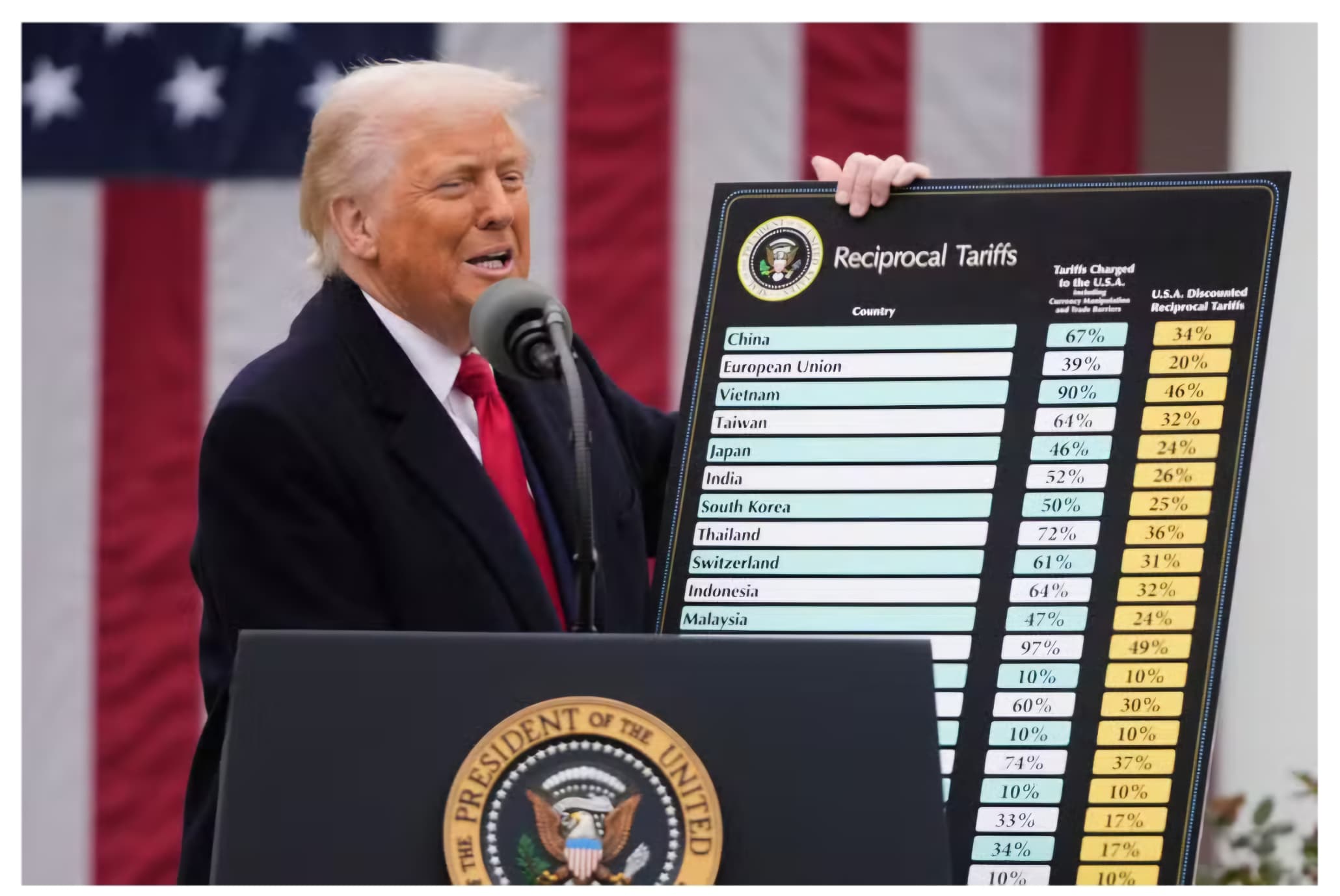KUALA LUMPUR – The United States has imposed a 24% import tariff on Malaysian goods as part of a sweeping set of trade measures announced by President Donald Trump, marking a significant escalation in global trade tensions.
In a statement on Wednesday (US time, Malaysian time today), Trump unveiled a blanket 10% tariff on imports from all trading partners, with significantly higher duties for certain nations.
Malaysia joins a list of countries facing elevated tariffs, including China (34%), the European Union (20%), Vietnam (46%), Sri Lanka (44%), Cambodia (49%), Laos (48%), and Myanmar (44%).
“These tariffs are not fully reciprocal. I could impose full reciprocity, but that would make things very difficult for many countries. We don’t want that to happen,” Trump said during his announcement.
The tariffs, which the White House describes as part of a broader push to spur domestic manufacturing and reduce trade imbalances, are expected to impact financial markets, particularly in Asia.
“While this caused an initial relief rally globally, sentiment in Asia is likely to deteriorate as the market digests the higher tariffs directed at specific countries, including China, which is facing a 34% tariff on imports and Japan’s 24% duty,” said Anderson Alves, a global macro analyst at ActivTrades.
Markets have been on a downward trajectory since February when Trump first signaled his intention to implement these measures. Following the official announcement, US stock futures slumped, with the Nasdaq falling over 2.3% and the S&P 500 sliding 1.5%.
Bilateral trade between Malaysia and the US reached RM324.9 billion in 2024, with the US being Malaysia’s third-largest trading partner, accounting for 11.3% of the country’s total trade.
According to the Office of the US Trade Representative, total goods trade between the two nations amounted to US$80.2 billion in 2024, with US exports to Malaysia rising by 43.5% to US$27.7 billion, while Malaysian exports to the US increased by 13.7% to US$52.5 billion.
Anadolu Ajansi reported that Trump described the move as a “declaration of economic independence,” arguing that the policy would strengthen US industry and lower consumer prices in the long run.
“We will supercharge our domestic industrial base. We will pry open foreign markets and break down foreign trade barriers, and ultimately, more production at home will mean stronger competition and lower prices for consumers,” he said.
While the tariff framework broadly applies to over 60 countries, Canada and Mexico have been exempted due to their previous commitments on migration and illicit fentanyl control. Other nations facing the baseline 10% tariff include the UK, Türkiye, Kenya, Iceland, Panama, Ethiopia, Lebanon, and Togo.
The White House confirmed that the 10% tariffs will take effect at midnight on April 5, while the higher duties on designated nations, including Malaysia, will be enforced from April 9.
According to data from Trading Economics, in 2024, Malaysia’s top exports to the US included electrical and electronic equipment (US$23.68 billion), machinery including nuclear reactors and boilers (US$6.30 billion), optical, photo, technical, and medical apparatus (US$3.89 billion), and rubber products (US$1.69 billion).
Other notable exports were furniture and lighting signs (US$1.55 billion), animal and vegetable fats and oils (US$600.11 million), plastics (US$571.98 million), and articles of iron or steel (US$453.88 million).
Malaysia also exported approximately US$16.2 billion worth of semiconductors to the US in 2024, accounting for nearly 20% of US semiconductor imports, according to Reuters.
However, certain Malaysian exports may be exempt from the additional tariffs. The White House statement specified that goods such as semiconductors and specific minerals not available in the US are excluded from the reciprocal tariffs. Given Malaysia’s significant role in the semiconductor industry, some exports in this sector might not be subject to the increased duties.
Trump indicated that the tariffs would remain in place until the US determines that trade imbalances and non-reciprocal practices have been sufficiently addressed. – April 3, 2025


